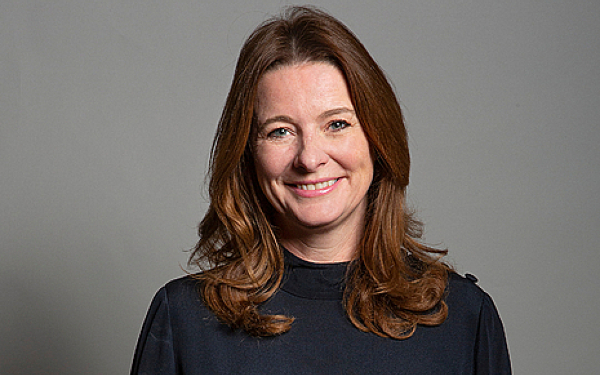
The government has delayed giving all self-funders the right to take advantage of, typically lower, council care home rates, following concerns authorities would lack the workforce to implement the change.
Minister for care and mental health Gillian Keegan announced today that the government had dropped its initial plan to extend the right to have your council arrange your residential care – under section 18(3) of the Care Act 2014 – to all self-funders, from October 2023.
Instead it will be applied first to new entrants to care homes, with those already in residential care becoming eligible from April 2025 at the latest.
Council and provider warnings
The shift came after councils and providers raised significant concerns about the feasibility of implementating section 18(3), in response to a consultation on statutory guidance to implement the government’s flagship funding reforms.
Besides section 18(3), these encompass the introduction of an £86,000 cap on the amount people pay for their personal care and a more generous means-test for accessing council-funded social care, both of which will also come into force in October 2023.
All three would likely give self-funders an incentive to approach their council to have their needs assessed, whether to benefit from council-funded care through the extended means-test, to start a care account metering their progress towards the cap or to benefit from lower fee rates through section 18(3).
This would generate the need to carry out an additional 100,000 assessments a year, said a report in May by the County Councils Network and consultancy Newton.
Lack of social workers
In the context of councils already facing significant backlogs of assessments, reviews and care packages and mounting social worker vacancies and turnover, council leaders have warned they will lack enough practitioners to implement the reforms.
Council respondents to the guidance on the consultation warned they would lack the assessment and administrative capacity to implement section 18(3), particularly given widespread uncertainty about how many self-funders would come forward.
Council and providers also raised concerns about the impact of the change on the care market, given providers’ longstanding reliance on the much higher fees paid by self-funders, than councils, in their business models.
In a 2017 report, the Competition and Markets Authority estimated self-funders paid 41% more, on average, than councils for a place in the same care home.
Funding to pay councils fair rate ‘inadequate’
As part of its care funding reforms, the government intends to close the fee gap by exhorting councils to pay providers “a fair cost of care”, backed by £1.4bn from 2022-25.
However, some respondents to the consultation warned this would not be sufficient for councils to pay providers a fair rate and ensure the sustainability of the market, in the context of section 18(3) bringing down self-funders’ fees.
In a statement to parliament today, Keegan said there were concerns that people may be left waiting for care and support “should a large number of people with existing care arrangements already in place approach their local authority to arrange their care at this point in time”.
Justifying its staged approach to implementing section 18(3), the DHSC said it was “right that these users, who are at the vulnerable moment of transitioning into residential care, benefit from the support of local authority care arrangement first”.
Keegan added that this would “allow individuals funding their own care to benefit from local authorities’ expertise in commissioning as quickly as possible, while allowing local authorities and social care providers to plan for this change and avoid unnecessary disruption to service provision”.
Commenting on the change on Twitter, King’s Fund director of policy Sally Warren said the change was reasonable but marked a significant shift on what the government had originally promised when it announced its care funding reforms last year.
??Latest announcement from Govt on social care funding reform. I know there is Big Politics going on today but this is an important policy. Johnson promised to fix social care on his first day in office – latest detail published today on the day of his resignation
— Sally (@so_says_sally) July 7, 2022


 Family help: one local authority’s experience of the model
Family help: one local authority’s experience of the model  ‘I spent the first three months listening’: how supportive leadership can transform children’s services
‘I spent the first three months listening’: how supportive leadership can transform children’s services  How senior leaders in one authority maintain a culture of excellence
How senior leaders in one authority maintain a culture of excellence  How staff support ensures fantastic outcomes for children and families
How staff support ensures fantastic outcomes for children and families  Workforce Insights – showcasing a selection of the sector’s top recruiters
Workforce Insights – showcasing a selection of the sector’s top recruiters 

 Facebook
Facebook X
X LinkedIn
LinkedIn Instagram
Instagram
Comments are closed.